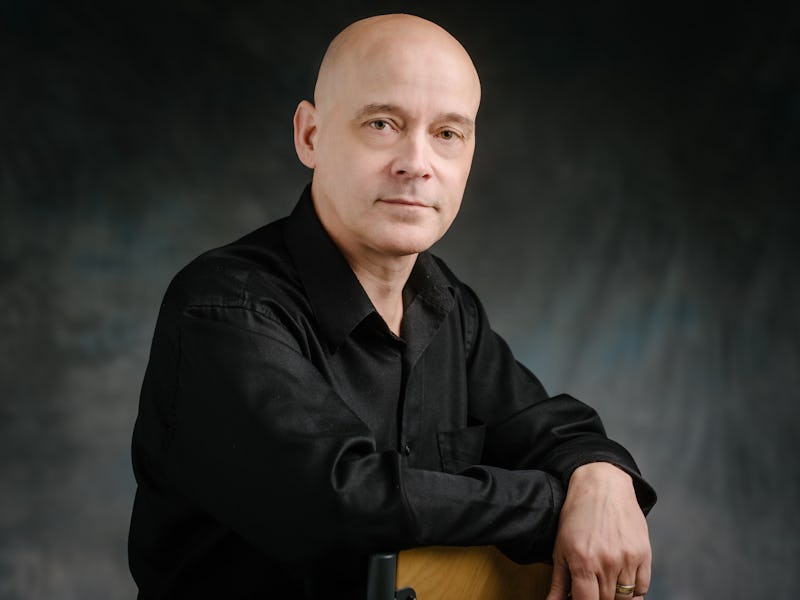Author Gerald Brandt Imagines the Future of Cyberpunk | Asking the Prophet
The author of 'The Courier' talks about building future Los Angeles and cyberpunk.

In Asking the Prophet, we use our alien probes on the brains of sci-fi, fantasy, and speculative fiction writers. This week, we spoke to Gerald Brandt about future Los Angeles, the future of cyberpunk, and more.
How did you go about conceptualizing future Los Angeles in a way that felt plausible for your book?
I wanted to have a multi-level city where the city actually reflected social status of the people. The upper class lived on the upper levels and the minions or slaves lived on the bottom levels of the city. I wanted the city to echo social status.
I’m not sure if my future city is plausible. It’s a city that goes all the way from San Francisco pretty much all the way down to the Mexican border and is seven levels high. Something like that would be fairly difficult to build nowadays. But could something like that actually happen? There’s got to be some way to deal with all the population explosion.
What was the most challenging part of envisioning this version of future Los Angeles?
Trying to map where technology would be in 100-and-some-odd years from now. I kind of circumvented that in some ways. For example, everybody still uses guns with gun powder. I brought in electric vehicles for absolutely everything, but I didn’t bring in self-driving vehicles because it didn’t fit into the story. I kind of handpicked pieces that I thought would give me a futuristic edge, but I kept in stuff like bullets and things that would keep people grounded in what they already know.
How did you go about picking pieces to give a futuristic edge to?
If you’re in a city several levels high and you’re living on level two, if you had vehicles that had exhaust, you’d have a whole bunch of issues trying to get rid of it. That’s why I brought in electric vehicles. Really, whatever could build the story is what I brought in: There’s space travel, there’s satellite cities that synchronized all the cities around the world.
What are some of your influences or favorite sci-fi books?
I’m going to have to go back to some cyberpunk stuff. I really like Snow Crash. I enjoy Neuromancer as well. Those are the ones that stick out to me.
Cyberpunk was big pre-internet to early internet. In this day and age when a lot of the mystery has been taken away, where do you see the genre going?
It’s certainly more difficult today. We’re realizing limitations and how realistic we can make these things and how we interface with computers and things like that. People are a lot more aware of technology now when they were back, say, in ’84 or ’87 or when Snow Crash came out. They’re a little bit less forgiving if you do something that is really bizarre. But I think that there’s always going to be a market for it, whether it grows back into being a huge market as it once was.
Do you think it will evolve, then?
It already has evolved a little bit. Going back to Snow Crash and even before that, some of the Philip K. Dick stuff — it has evolved tremendously. It has to stay ahead of the curb of current technology, and it has to be a little bit more realistic than some of the older books in the way that the technology interfaces with humans. People are significantly more knowledgeable on how computers actually work, so it’s going to have to evolve in order to stay believable.